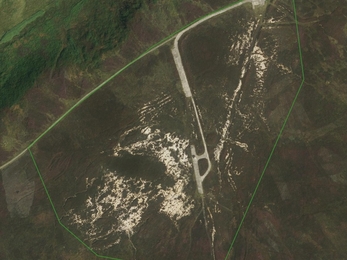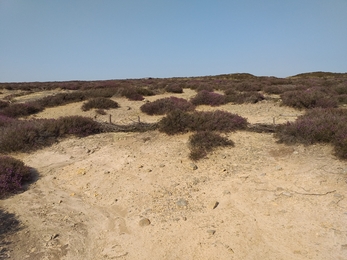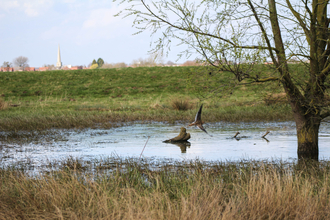Moorland restoration in the North York Moors
The Jugger Howe restoration project aims to restore an area of upland habitat in order to slow the flow of water off the moorland, reduce erosion and sediment washing into the river.
Towards the end of 2019, we were awarded a grant from the European Agricultural Fund for Rural Development (EAFRD) through the Water Environment Grant for a moorland restoration project at Jugger Howe on Fylingdales Moor. During World War Two, the land was used as a training site for military tanks and has never really recovered. Before this restoration work took place, the ground was badly eroded with little vegetation cover.
The restoration work took place in August 2020 to restore 1.6 hectares of moorland habitat near the very top of the catchment of the River Derwent in the North York Moors National Park.
Our restoration work
The restoration work has helped to restore this bare moorland habitat through the installation of over 400 coir rolls into the landscape. The positioning of this natural material slows the flow of water off the moor and reduces erosion.
The rolls will also trap fine sediment ensuring it does not get washed into nearby rivers and streams. Heather brash, containing heather seeds, and an upland grass seed mix, has also been spread on the site to encourage new plants to grow on the bare ground.
Check out our Jugger Howe story on our Instagram.
Jugger Howe restoration project
Funder
European Agricultural Fund for Rural Development (EAFRD) through the Water Environment Grant which is administered by the Environment Agency and Natural England.
Timescale
One year (2020)




